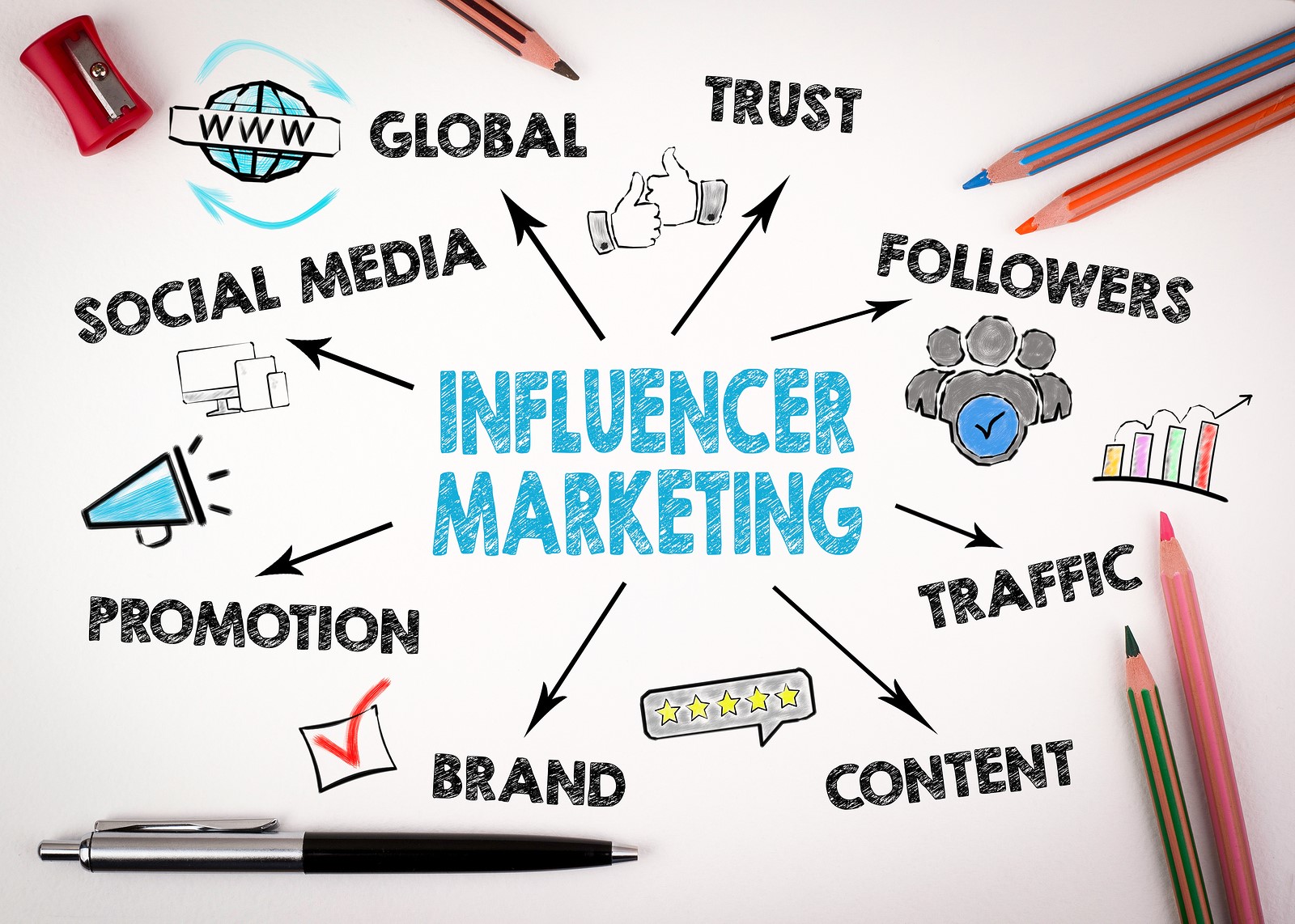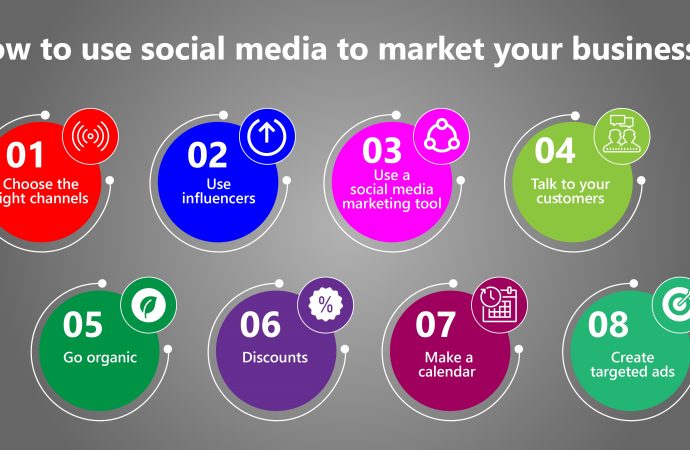In the digital age, social media trends play a significant role in shaping the landscape of marketing strategies for businesses across industries. As social media platforms evolve and user behaviors shift, staying abreast of emerging Social Media Trends is essential for brands to remain competitive, engage their audience effectively, and drive impactful marketing campaigns. In
In the digital age, social media trends play a significant role in shaping the landscape of marketing strategies for businesses across industries. As social media platforms evolve and user behaviors shift, staying abreast of emerging Social Media Trends is essential for brands to remain competitive, engage their audience effectively, and drive impactful marketing campaigns. In this article we delve into the ways which Social Media Trends are influencing marketing strategies, from content creation and influencer partnerships to data analytics and customer engagement, providing insights into how businesses can leverage the power of social media to boost their brand presence and connect with their target audience in meaningful ways.
1. Content Personalization:
One key aspect of Social Media Trends influencing marketing strategies is the focus on content personalization. With the rise of algorithm-based feeds and user-curated content, brands are tailoring their messaging, visuals, and storytelling to align with individual preferences and interests. By analyzing user data, engagement metrics, and behavioral patterns, brands can create personalized content that resonates with their target audience, fosters deeper connections, and drives higher engagement levels on social media platforms.
2. Video Marketing Dominance:
Video marketing continues to dominate Social Media Trends, with platforms like TikTok, Instagram Reels, and YouTube leading the way in visual storytelling and short-form video content. Brands are leveraging the popularity of video formats to capture users’ attention, convey messages effectively, and showcase products or services in a visually engaging manner. Incorporating video marketing strategies into their campaigns enables brands to stand out in a crowded digital space, drive brand awareness, and connect with audiences on a more immersive and interactive level.
3. Influencer Collaboration:
Influencer marketing remains a potent strategy driven by Social Media Trends, as brands partner influencers to amplify their reach, credibility, and engagement with target consumers. Influencers, with their large followings and authentic voice, have the power to shape trends, drive conversations, and influence purchasing decisions on social media platforms. Collaborating with influencers allows brands to tap into their influence, connect with niche audiences, and leverage their credibility to enhance brand visibility and advocacy in the digital sphere.
4. Social Commerce Integration:
Social commerce integration is a significant trend shaping marketing strategies on social media, where platforms are blurring the lines between content, community, and commerce. With features such as shoppable posts, in-app purchases, and checkout options, brands can facilitate seamless transactions, drive sales directly from social media platforms, and capitalize on users’ purchase intent in a seamless and convenient manner. Social commerce integration enables brands to monetize their social media presence, leverage user-generated content, and create a frictionless shopping experience for consumers.

Image by: Bing.com
5. Conversational Marketing:
Conversational marketing has emerged as a key strategy influenced by Social Media Trends, focusing on real-time interactions, personalized messaging, and chatbot automation to engage users and nurture leads. By deploying chatbots, personalized messaging apps, and interactive features, brands can offer instant support, engage in two-way conversations with users, and deliver tailored recommendations based on user inquiries and preferences. Conversational marketing humanizes the brand-customer relationship, enhances customer experience, and drives conversions through personalized and timely communication.
6. User-Generated Content Strategies:
User-generated content (UGC) strategies are gaining prominence in marketing strategies due to Social Media Trends that emphasize authenticity, social proof, and community engagement. Brands are leveraging UGC to showcase customer testimonials, product reviews, and user-generated visuals that resonate with audiences, build trust, and create a sense of belonging within the brand community. By encouraging users to create and share content related to their brand, businesses can amplify their reach, enhance brand advocacy, and foster a sense of authenticity in their marketing efforts.
7. Data-Driven Decision-Making:
Data analytics is a critical component of marketing strategies influenced by Social Media Trends, where brands leverage insights from user data, social media metrics, and performance analytics to inform their decision-making processes. By analyzing key performance indicators, tracking campaign results, and monitoring audience behavior, brands can optimize their content strategy, ad targeting, and customer segmentation to achieve better results on social media platforms. Data-driven decision-making empowers brands to refine their strategies, allocate resources effectively, and drive ROI from their marketing initiatives.
8. Micro-Moments Marketing:
Micro-moments marketing is a strategy driven by Social Media Trends that focuses on capturing users’ attention and intent in brief moments, with tailored messaging and content that address their immediate needs and queries. Brands leverage micro-moments, such as product searches, location-based queries, or social media interactions, to deliver relevant and timely content that meets users’ specific demands and influences their decision-making process. By seizing micro-moments through personalized and contextually relevant content, brands can connect with users in critical touchpoints and drive engagement on social media platforms.
9. AI-Powered Automation:
Artificial intelligence (AI) and automation technologies are reshaping marketing strategies on social media, guided by the evolving landscape of Social Media Trends. Brands are leveraging AI-powered tools, chatbots, and predictive analytics to streamline customer interactions, personalize user experiences, and optimize ad targeting on social media platforms. AI automation enables brands to automate repetitive tasks, deliver personalized recommendations, and analyze large datasets efficiently, enhancing operational efficiency, improving customer engagement, and driving more personalized interactions with users.
10. Community Building and Engagement:
Community building and engagement are integral components of marketing strategies influenced by Social Media Trends, as brands seek to cultivate a loyal and engaged audience around their products or services. By creating online communities, hosting virtual events, and engaging in meaningful conversations with followers, brands can foster a sense of belonging, loyalty, and advocacy among their audience. Community building strategies allow brands to create a dedicated space for users to connect, share experiences, and interact with like-minded individuals, driving brand loyalty and advocacy on social media platforms.
















